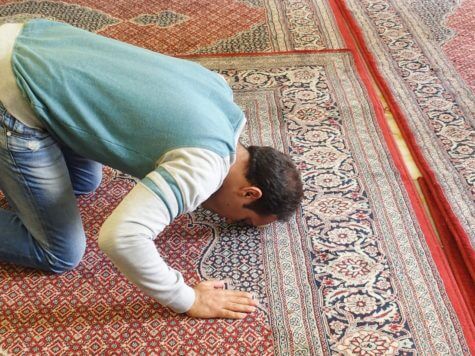STANFORD, Calif. — A new study from Stanford University illustrates the potentially dangerous implications that arise when young Muslim immigrants don’t feel integrated into Western society.
Researchers conducted two related studies, the earlier of which recruited 198 Muslims living across the United States, 78 of whom were men. All participants were between the ages of 18 and 35, a majority had Pakistani ancestry, and most lived in the states of California, Maryland, and Virginia.

Through surveys administered to participants, the researchers both hoped to gauge attitudes on cultural identity and extremism, and measure whether participants had experienced discrimination based on their background.
Subsequent to the survey, participants were presented with a vignette showing a Muslim group operating in the U.S. that didn’t explicitly espouse violence, yet focused on providing “belonging, commitment and loyalty to potential members.” The clip made clear that the group stood against “American maltreatment of Muslims” and justified extreme measures to advance its agenda.
Participants were then asked to evaluate the extent to which they felt their friends would fit and participate in the group, along with any sympathies they would feel for the group as a whole.
Overall, the researchers found that individuals who had been discriminated against were significantly more likely to show support for the fictional group, even if by proxy through a friend.
Marginalization, along with prejudice, drives individuals to find purpose and community in other places, the researchers noted.
“We found that immigrants who identify with neither their heritage culture nor the culture they are living in feel marginalized and insignificant,” says researcher Sarah Lyons-Padilla in an American Psychological Association news release. “Experiences of discrimination make the situation worse.”
A second study conducted in Europe found similar outcomes with nearly identical inputs.
In fact, Muslims living in Germany, for instance, found even harder to integrate than in the U.S. The study found those who struggled to integrate with their new environment were more likely to support extremist practices.
“In what has also been referred to as a vicious cycle of prejudice, we find that lower levels of openness to diversity are associated with lower levels of cultural integration,” explains Lyons-Padilla. “Difficulty integrating, in turn, shapes support for extremism. Our findings therefore suggest that radicalization is not merely a process that takes place within individuals, but that the larger context of reception plays a crucial role.”
The study’s findings were presented at the American Psychological Association’s 125th Annual Convention in early August in Washington, D.C.

Someone who has difficulty integrating should not have been brought here in the first place. Problem solved.